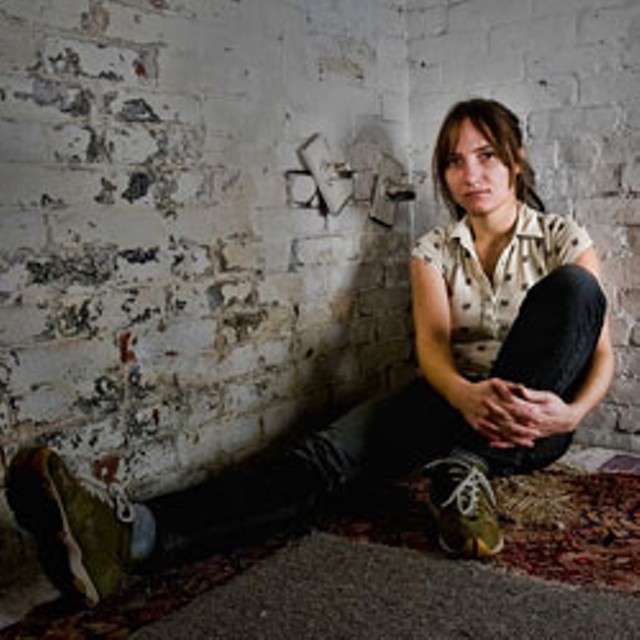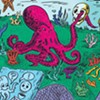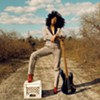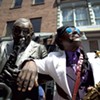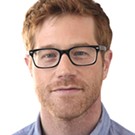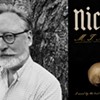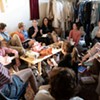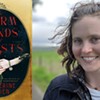Published November 23, 2011 at 9:14 a.m.
By most measures, Boston-based songwriter Audrey Ryan is a successful musician. She’s toured nationally and internationally. She’s recorded a handful of critically acclaimed albums and was signed to a European label, Folkwit Records. Since leaving Burlington a decade ago — the University of Vermont grad is responsible for painting the door of Radio Bean red, by the way — Ryan has carved out a career many musicians would envy. At least those unconcerned with, you know, actually making any money.
For all her accomplishments, Ryan has never been able to translate her hard work into a sustainable living. That frustration led her to pen a new book, The Need to Be Heard, which chronicles her experiences in the music business as a DIY artist. Through anecdotal stories and extensive interviews with a wide range of musicians and industry types — Fugazi’s Ian MacKaye, Pitchfork Media’s Mark Richardson and Asthmatic Kitty Records founder Lowell Brams, to name a few — Ryan details her life as a professional musician and draws surprising and often provocative conclusions about whether pursuing music as a career is ultimately worth it.
Seven Days recently spoke with Ryan by phone, in advance of her upcoming release party at the 1/2 Lounge in Burlington on Saturday, November 26.
SEVEN DAYS: What inspired you to write a book about the music business?
AUDREY RYAN: Well, writing is my number-two passion — and sometimes my number one. But when I was touring all the time, I had a lot of time on my hands; there is a lot of down time. So I started journaling, basically. Each of the segments in the book where I kind of rant about whatever is sort of like a blog. So I compiled them, then interviewed other people to get second opinions — or third or fourth. It ended up being very cathartic.
SD: The music industry, especially in the current climate, is an unwieldy topic. I imagine that must have been a challenge to distill.
AR: Absolutely. And I really only focus on a small part of what is out there. But that’s why I interviewed as many people as I did — 12 or 15 industry people and 20 or 30 artists. It helped me to focus.
SD: You started writing in 2008. But even in the short time since, the industry has changed. Did that affect how you wrote your book?
AR: It did. And I’ve actually changed quite a bit as a person since I started writing it. In 2008 I was in the thick of [being a working musician] and I was really cynical and jaded. I had been working so hard and still was struggling to make a living. So I started writing the book almost as a way to admit that maybe trying to make my living in music wasn’t the best idea.
SD: That’s a sobering thought. What surprised you the most in writing the book?
AR: Lee Anderson, from the Radio Bean — there is something about him in the beginning of the book and an interview at the very end of the book. He was one of the people who inspired me to write it. The first story the book tells is about me being interviewed for a documentary film about some indie-rock band, like, four years ago. After the interview I asked the camera guy who else they had interviewed and he said that his interview with Lee Anderson was his favorite, because Lee said he thinks people should just keep their jobs and do music because they love it and not make a career out of it.
SD: At the time, that must have been a tough thing to hear.
AR: I was actually kind of offended, because at the time I was trying to make my living on music. But I also had this feeling in the pit of my stomach, like, “You know what? I think he’s right. Maybe I have the wrong idea here. And maybe that’s why I’m so miserable all the time.” I realized I was so frustrated by the business of music — I didn’t get it. I didn’t get how you could work so hard and still not get what you want. That’s when I started writing the book.
SD: There seems to be a widely held, pie-in-the-sky sentiment that, once upon a time, there was an era when it was easier to be a working musician. Do you think that time ever really existed?
AR: I asked that question to a guy named Willie Wisely. He’s in his forties and has been in the business basically since the 1980s. I asked him if it was easier then and he said, “No, there were shitloads of bands back then, too.” I mean, even though the internet clogs the airwaves, it’s so much easier to get a gig. You can reach a global audience without leaving your house. But what makes it harder is that music has just been devalued to the point that no one wants to pay you for it. In some cases, clubs want to you to pay them to play. They make you buy tickets and sell them to your friends.
SD: Is the internet a double-edged sword? On one hand, music is more accessible than ever. But on the other, at least for consumers, there’s so much more crap to wade through.
AR: It’s overwhelming. And it’s really hard to rise to the surface. I’ve been fortunate to rise in Boston, and in Portland, Maine, because I’m from Maine. And I’ve been in Boston forever, so people know who I am. But even just to do well in two towns took me almost 10 years.
SD: Let’s say I’m a 16-year-old singer-songwriter. I’m bright eyed, bushy tailed and full of passion to make it work as a musician. Do you tell me to go for it or run screaming for the hills?
AR: That’s funny. On my book tour I interviewed a 15-year-old songwriter who was totally that kid. He was all excited because he was applying to Berklee [College of Music]. And my honest opinion on that is, don’t waste your money. But I’m not going to tell him that, because he’s totally bright eyed and bushy tailed. And I don’t want to squash anyone’s dreams. That’s not constructive. When I was that age, I had that burning desire and I would have been so mad if someone had told me that. So I think you need to go through that process of understanding by yourself. But where I think the book can help is that if people read it before they go into music, they’ll know it’s going to be really friggin’ hard.
Audrey Ryan celebrates the release of her new book with a show at the 1/2 Lounge in Burlington this Saturday, November 26, at 7 p.m. Free. Alice Austin opens.
More By This Author
Speaking of...
-

Rain Curtails Historic 'Sound of Music' Concerts
Jun 22, 2024 -

Two Local Band Directors March in the Macy's Parade
Nov 22, 2023 -

Before a Burlington Show, the Wood Brothers Get Back to Basics
Oct 26, 2023 -

After a Half-Century of Leading Local Ensembles, Steven and Kathy Light Prepare a Musical Farewell
May 3, 2023 -

Double E 2023 Summer Concert Series Kicks Off With the Wailers
Mar 17, 2023 - More »
Comments
Comments are closed.
From 2014-2020, Seven Days allowed readers to comment on all stories posted on our website. While we've appreciated the suggestions and insights, right now Seven Days is prioritizing our core mission — producing high-quality, responsible local journalism — over moderating online debates between readers.
To criticize, correct or praise our reporting, please send us a letter to the editor or send us a tip. We’ll check it out and report the results.
Online comments may return when we have better tech tools for managing them. Thanks for reading.
































